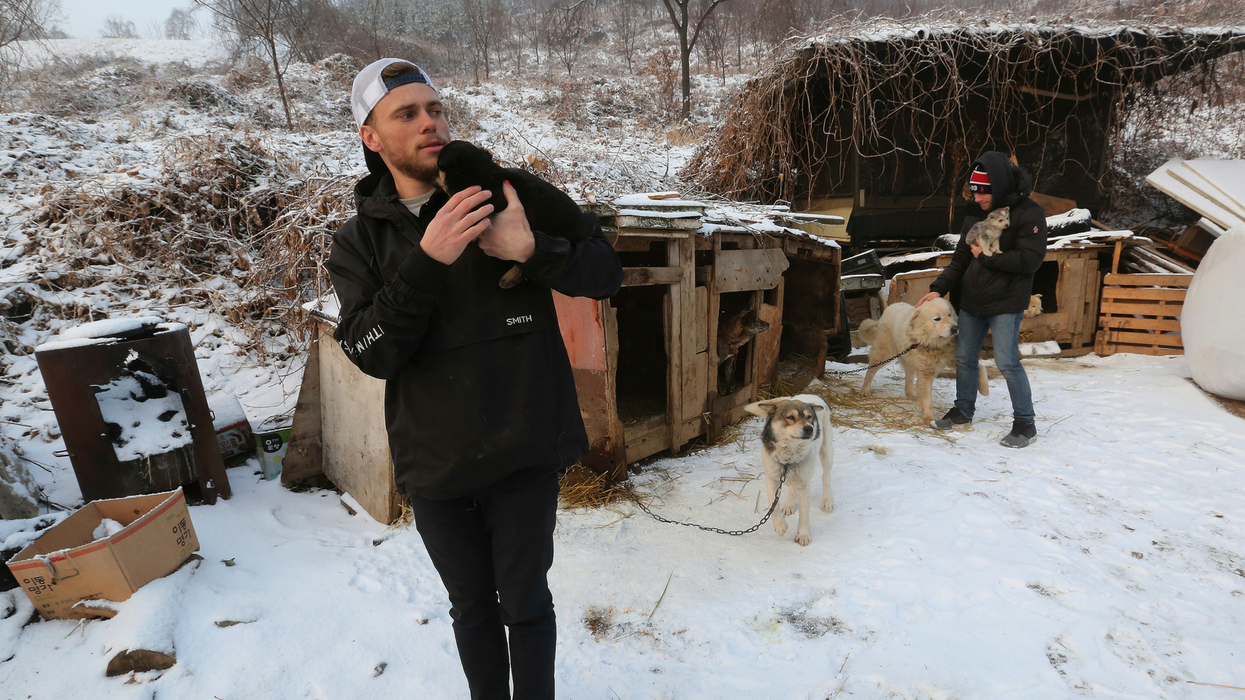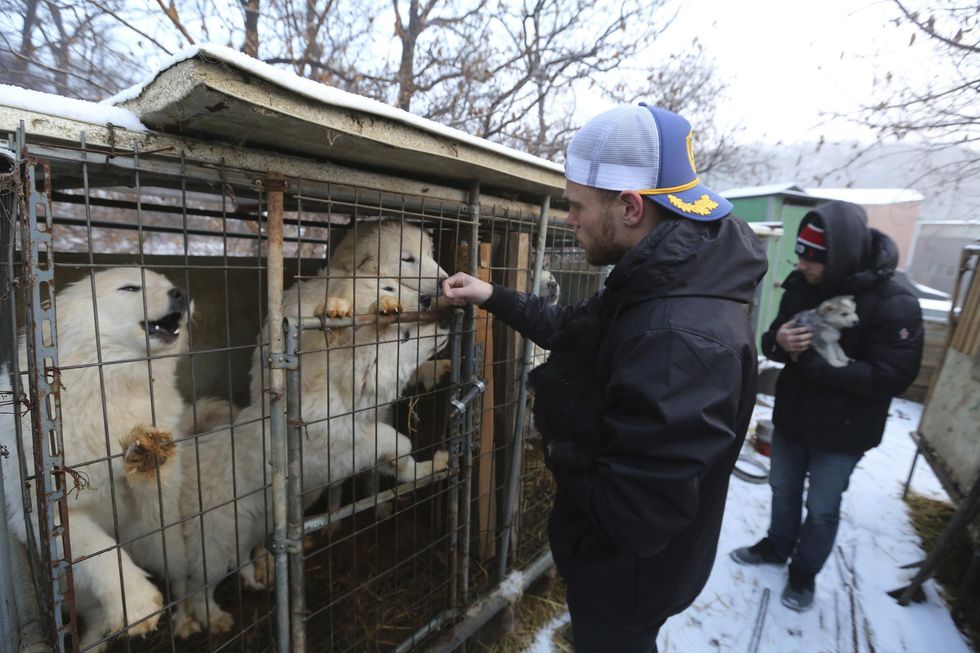News
Darin Graham
Feb 24, 2018

Picture:
AP Photo/Ahn Young-joon
An American freestyle skier took a break from the Pyeongchang Winter Olympics to go on a “heart-wrenching” visit to a dog farm in South Korea.
After his experience on Friday, Gus Kenworthy, 26, raised concerns over the treatment of animals in a country where the dog trade is estimated to generate $2 billion every year, according to figures from the International Aid for Korean Animals (IAKA).
In a post to Twitter, the athlete explained his experience and said that while he understands the cultural significance of eating dogs in South Korea and that it’s not his place to “impose Western ideals” on the country, for him, the treatment of the animals on the farm was unacceptable. He said:
The way these animals are being treated, however, is completely inhumane and culture should never be a scapegoat for cruelty.
He added that the dogs he saw were malnourished and abused and lived in small spaces and he even ended up adopting one of them. He now hopes to raise awareness of the matter and the need for homing dogs, including in his home country.

Over 100,000 farms holding 892,820 dogs were reported in a 2010 agriculture census carried out by Korea’s Statistics Information service. Other estimates suggest millions of dogs are slaughtered each year.
Just before the Olympics, the Korean Association for Animal Protection said at a conference that dogs are friends, not meat - and demanded the prohibition of dog meat. The organisation argued that the practice of dog eating - which is neither legal or illegal in South Korea as it is considered livestock but not food by the Ministry of Food and Drugs, risks alarming visitors to the country. The association said at the January conference:
We wish to bring an end to Korea’s dog meat-eating habit. Dogs are man’s best friend and we shouldn’t eat them.
After Mr Kenworthy shared his story, many users reacted in shock and praised the athlete for spreading the message. Others, however, criticised his points arguing that other animals are treated badly in agricultural practices around the world.
The skier responded to critics saying the canine industry in Korea is “manageable” and that people around the world would care for the dogs “and show them the love they so desperately deserve.”
People for the Ethical Treatment of Animals (PETA) has also heavily criticised the canine farming industry in South Korea and accused the government of offering monetary incentives to restaurants near the Olympic stadium to stop serving dog meat during the sporting event. PETA said in a statement:
South Korea is also asking food venues to take down or cover up signs that advertise it. Nearly all the restaurants have refused. Similarly, dog-meat farms near where Olympic events are taking place have no plans to relocate or temporarily close.
In an email to USA Today Sports from the Pyeongchang Olympics organising committee, a spokesperson addressed concerns around dog meat eating and said:
We are aware of the international concern around the consumption of dog meat in Korea. This is a matter which the government should address. We hope that this issue will not impact on the delivery or reputation of the Games and the province and we will support the work of the province and government on this topic as needed. Also, dog meat will not be served at any Games venue.
The government of South Korea is yet to comment on the matter on the recent international concern over dog eating in the country.
More: Mike Pence is in South Korea for the Winter Olympics and gay athletes are trolling him
Top 100
The Conversation (0)













